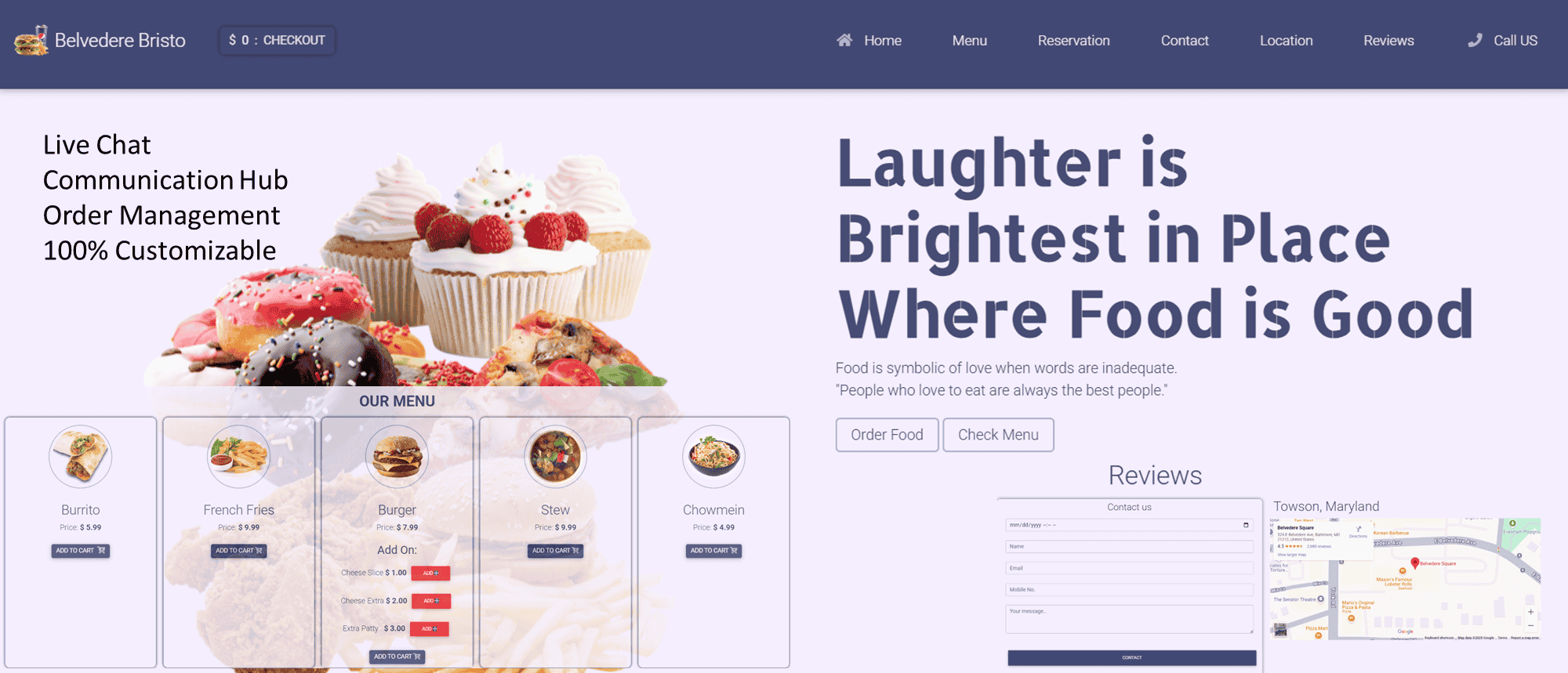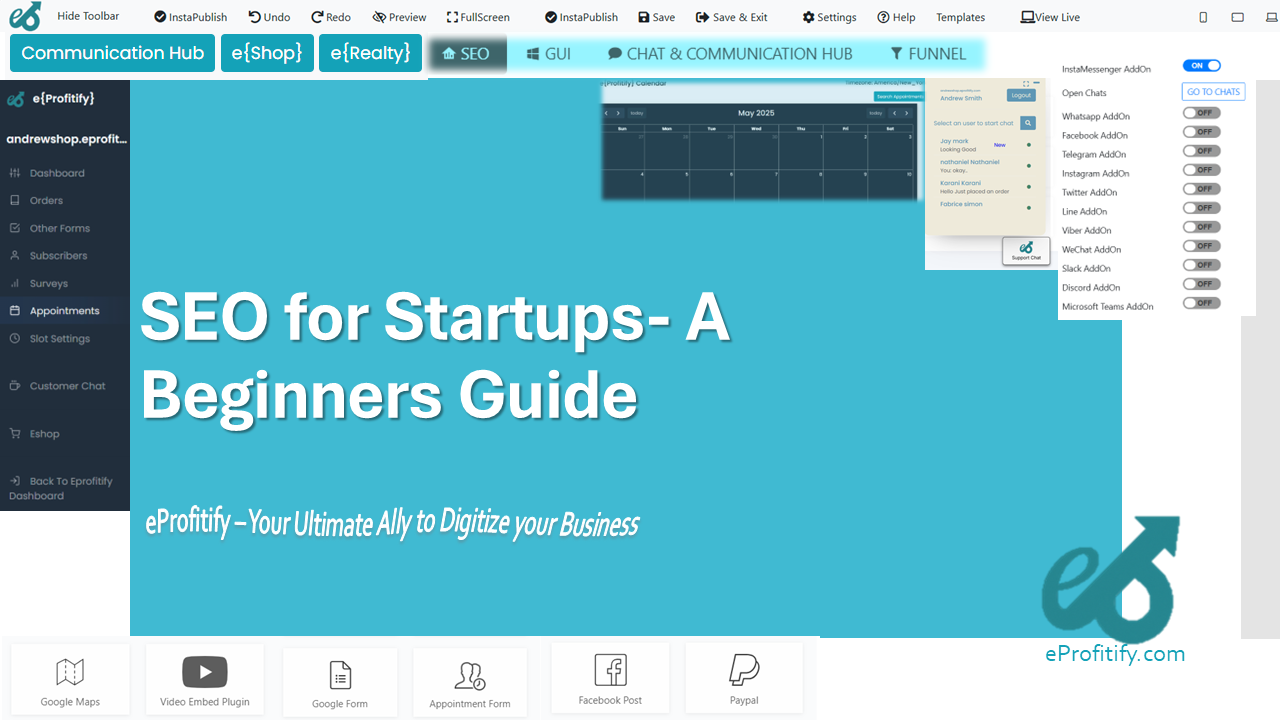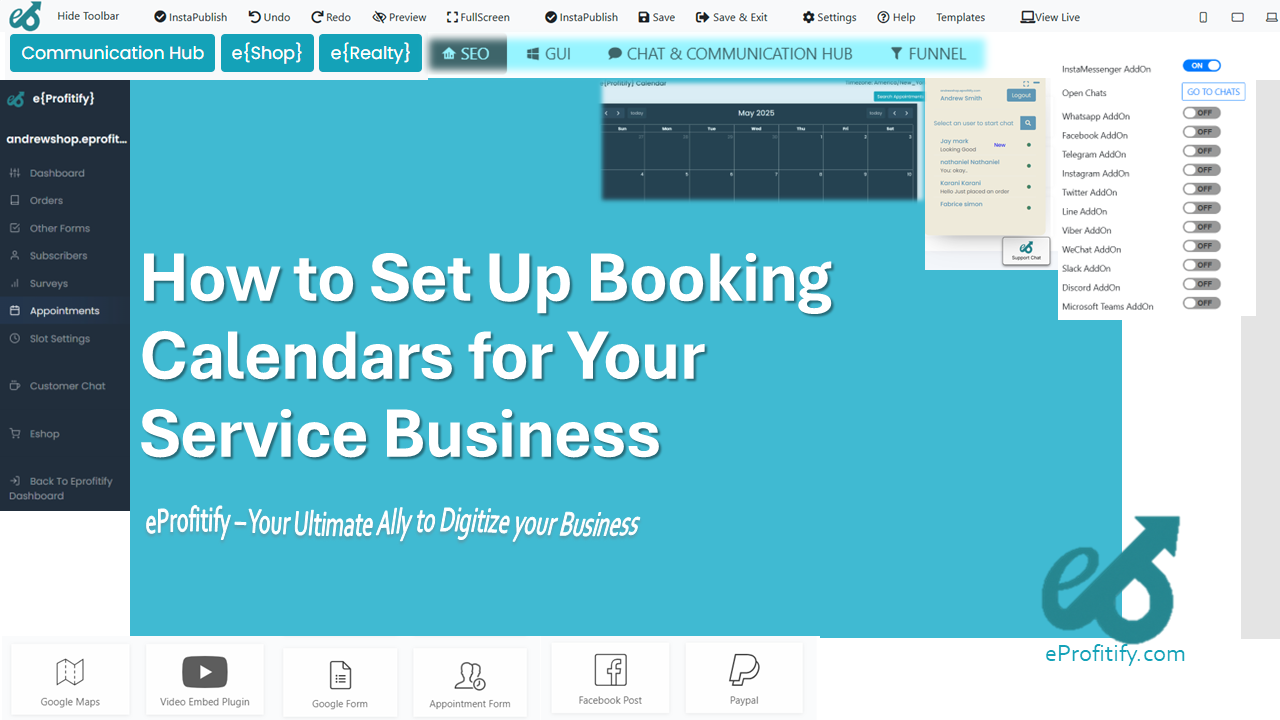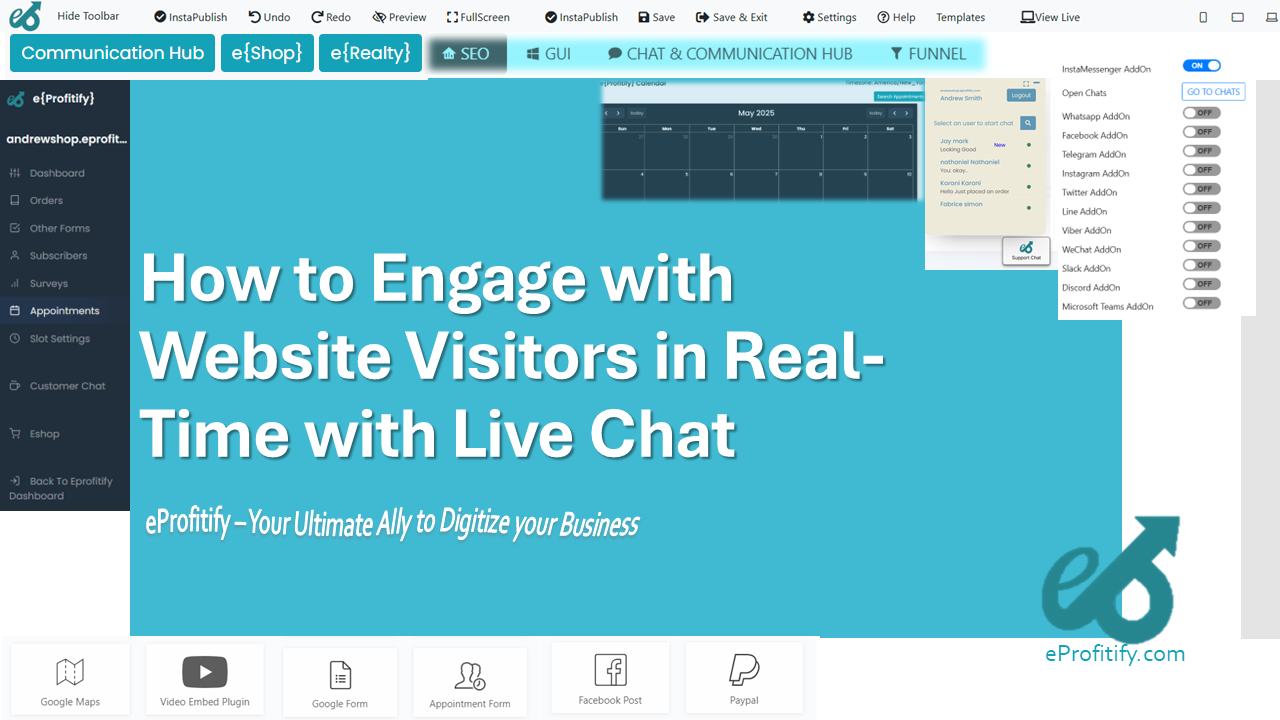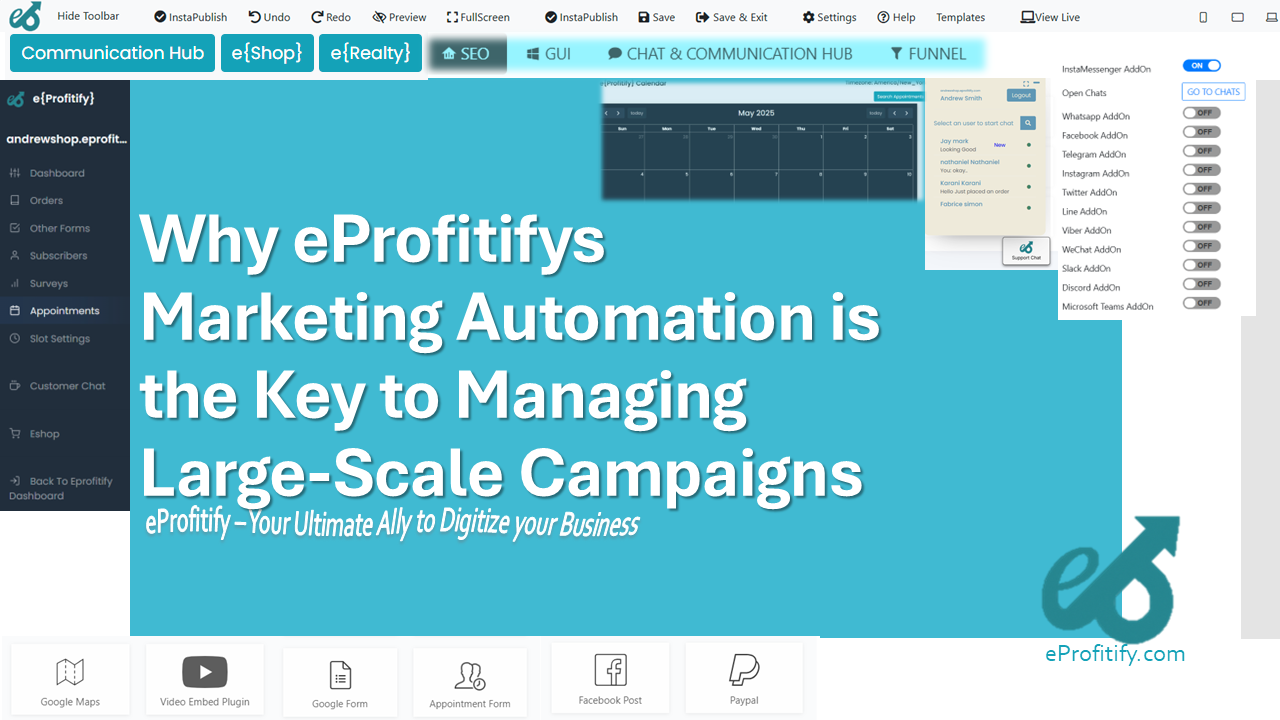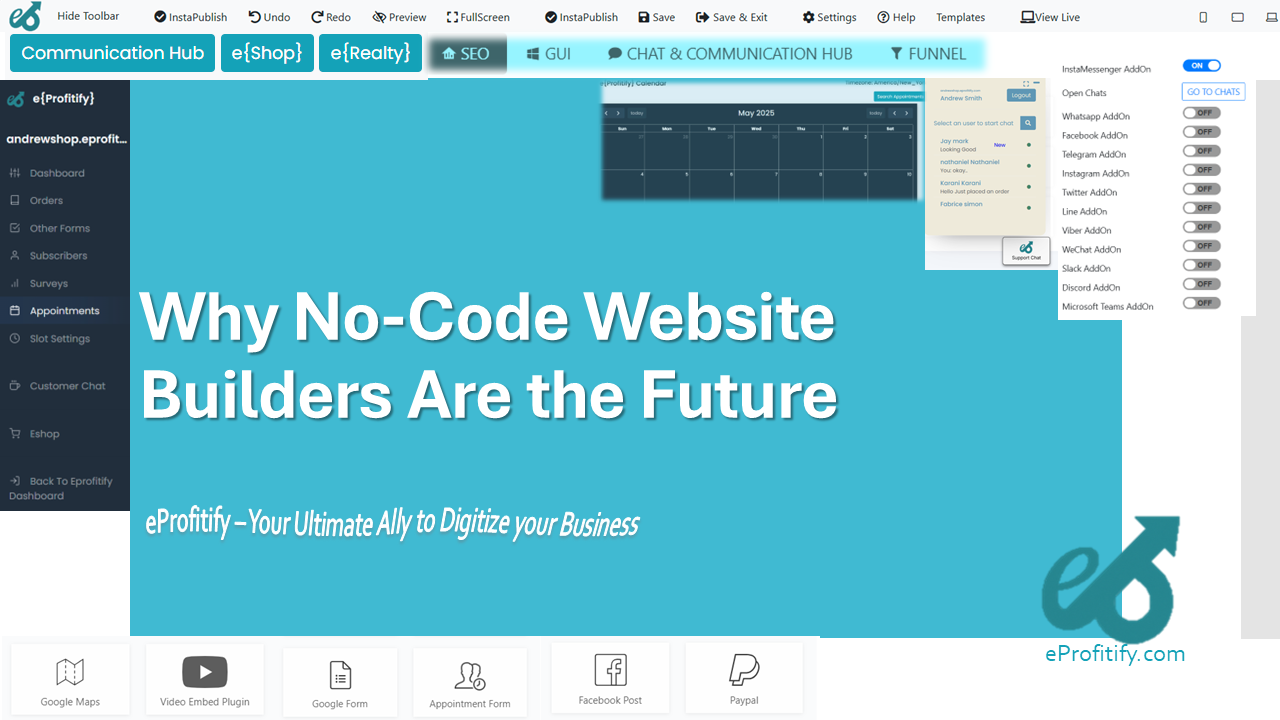Staying Updated with Real Estate Market Trends in 2025
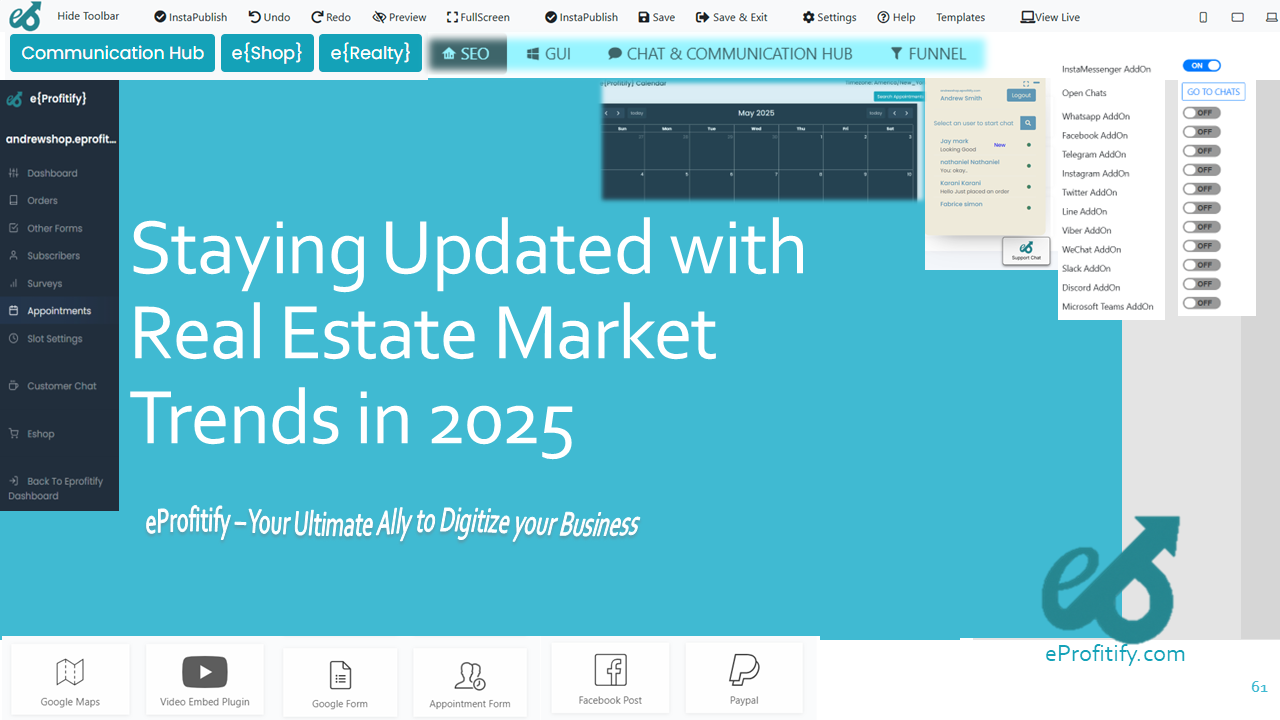
Staying Updated with Real Estate Market Trends in 2025: Strategies and Tools
The real estate industry is evolving at an unprecedented pace, driven by technological innovation, shifting consumer preferences, and economic dynamics. In 2025, staying ahead of market trends isn’t just a competitive advantage—it’s a necessity for agents, investors, and developers. From the rise of PropTech (property technology) to sustainability mandates and changing buyer demographics, professionals must adopt agile strategies and cutting-edge tools to thrive. This article explores key real estate trends in 2025, backed by industry statistics, and highlights how platforms like eProfitify are revolutionizing the way businesses operate.
Key Real Estate Market Trends in 2025
1. Hyper-Personalization Through AI and Big Data
Artificial Intelligence (AI) and big data analytics have become indispensable in understanding buyer behavior. By 2025, over 70% of real estate transactions are expected to involve AI-driven tools for property recommendations, pricing optimization, and risk assessment (source: McKinsey & Company). Predictive analytics are helping agents identify high-potential leads, while virtual assistants provide 24/7 customer support.
2. Sustainability as a Market Driver
Environmental concerns continue to shape buyer preferences. A 2025 report by the National Association of Realtors (NAR) reveals that 65% of homebuyers prioritize energy-efficient features, such as solar panels or smart HVAC systems. Governments are also enforcing stricter green building codes, pushing developers to adopt eco-friendly materials and designs.
3. Remote Transactions and Hybrid Work Models
The pandemic’s legacy endures, with remote workflows becoming standard. In 2025, 40% of commercial real estate leases include hybrid workspace clauses (JLL Research), while residential buyers increasingly rely on virtual tours and blockchain-based contracts. This shift demands seamless digital platforms to manage transactions without physical touchpoints.
4. Urban Reshoring vs. Suburban Demand
Urban centers are rebounding post-pandemic, but suburban markets remain strong. A Zillow study projects that suburban home prices will grow by 5.8% year-over-year in 2025, outpacing urban areas (4.2%). Investors must balance portfolios to capture both markets.
5. Regulatory Changes and Tax Incentives
Tax reforms and housing policies are reshaping investment strategies. For instance, the U.S. government’s First-Time Homebuyer Tax Credit 2025 offers up to $15,000 in credits, boosting demand for starter homes. Staying compliant requires real-time updates on policy shifts.
The Role of Technology in Navigating Trends
To capitalize on these trends, professionals need tools that centralize data, automate processes, and enhance client interactions. This is where platforms like eProfitify shine. As a leading website publishing and management tool tailored for real estate, eProfitify combines CRM, instant messaging, appointment management, and ecommerce into a single ecosystem.
eProfitify’s Features for 2025-Ready Real Estate Businesses
-
Instant Messaging and Chatbots
eProfitify integrates AI-powered chatbots that engage visitors 24/7, answering FAQs and scheduling appointments. In a time-sensitive market, instant communication reduces lead response times from hours to seconds. -
Advanced CRM System
The platform’s CRM goes beyond contact management. It tracks client interactions, preferences, and transaction histories, enabling hyper-personalized marketing. Agents can segment audiences based on sustainability interests or budget ranges, improving conversion rates. -
Appointment Management System
With hybrid work here to stay, eProfitify’s calendar sync and automated reminders ensure no meeting is missed. Virtual tour bookings, open house registrations, and negotiation calls are streamlined in one dashboard. -
Ecommerce Integration
Sell properties directly through eProfitify’s ecommerce module. Users can list homes, accept bids, and process payments securely—essential for remote transactions. -
Analytics Dashboard
Real-time data on website traffic, lead sources, and market trends empowers data-driven decisions. For example, agents can identify which suburban ZIP codes are trending and adjust marketing spend accordingly.
Relevant Statistics Highlighting Market Shifts
- The global PropTech market is projected to reach $86.5 billion by 2025, growing at a CAGR of 16.8% (Allied Market Research).
- 86% of buyers used online platforms during their home search in 2025, up from 75% in 2022 (NAR).
- Commercial real estate’s adoption of IoT (Internet of Things) for smart buildings will reduce operational costs by 30% by 2025 (Gartner).
These stats underscore the importance of digitization in maintaining competitiveness.
Why eProfitify is a Game-Changer
eProfitify isn’t just another CRM—it’s a holistic solution designed for the complexities of 2025’s real estate landscape. By consolidating critical tools into one platform, it eliminates the need for disjointed software, reducing costs and inefficiencies. For instance:
- Agents can share 3D virtual tours via the platform while chatting with clients in real time.
- Investors use predictive analytics to assess neighborhood growth potential.
- Developers leverage ecommerce tools to pre-sell units in eco-friendly projects.
Moreover, eProfitify’s mobile app ensures professionals stay connected on the go, a must-have in fast-paced markets like Dubai or Miami.
Conclusion
The real estate sector’s future belongs to those who embrace innovation and agility. In 2025, trends like AI-driven personalization, sustainability, and remote transactions redefine success metrics. Platforms like eProfitify are not just optional—they’re essential for staying ahead. By offering CRM, instant messaging, analytics, and ecommerce in one place, eProfitify empowers professionals to adapt swiftly, deliver exceptional client experiences, and capitalize on emerging opportunities. As the industry evolves, leveraging such tools will separate the market leaders from the rest.
Sources
- McKinsey & Company, AI in Real Estate, 2025
- National Association of Realtors (NAR), Sustainability Report 2025
- JLL Research, Hybrid Work and Commercial Real Estate, 2025
- Allied Market Research, PropTech Market Forecast, 2023–2025
By integrating technology like eProfitify, real estate professionals can future-proof their businesses and thrive in an ever-changing market.
